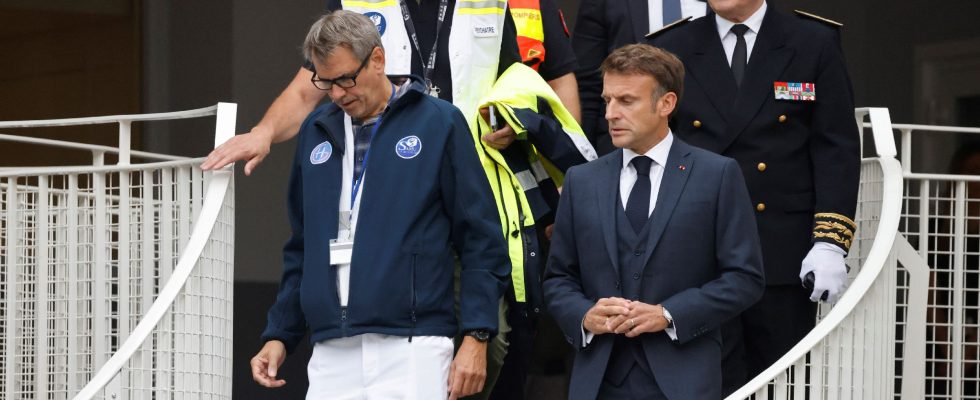“It looks like you’re talking about Basque terrorism!” On January 2, 2017, a few days after an attack on a Christmas market in Berlin claimed by ISIS, candidate Emmanuel Macron published in The world a forum on fanatical terrorism. He never uses the term “Islamist”. It was then that one of his friends sent him this mocking SMS.
Friday, this was the first sentence of his speech in Arras, in the high school where Professor Dominique Bernard had just been killed: denouncing “the barbarity of Islamist terrorism”. To misname an object is to add to the misfortune of this world… He first had to learn the vocabulary, and he did it. He then mentioned several times, during the tribute to Arnaud Beltrame in 2018 or after the attack on the Paris police headquarters in 2019, “the Islamist hydra”. Striking minds with shocking formulas. Breaking taboos too, even if it means shocking his ministers from the left, as when, returning from a trip to the Col du Perthus, on November 5, 2020, Emmanuel Macron confided to the Figaro : “I think it is wrong to say that the problem of terrorism is reducible to the problem of immigration. But we would be ineffective to say that there is not a part of terrorism which can be linked to a form immigration.”
There was a time when the Macronists could still rejoice that the president had spoken before the tragedies, that he had in some way taken the lead. The famous Mureaux speech on separatism, on October 2, 2020, came two weeks before the beheading of Samuel Paty. On the day of his speech, Emmanuel Macron also answered journalists’ questions: “I learned concretely about things that I saw less, I experienced terrorism from where I am, I learned and discovered everything that I spoke with you, so yes it changes you and I formed the conviction that we had to respond in the most appropriate way to that.” The learning of a president in the face of barbaric death.
Three years ago, the assassination of Samuel Paty was a shock of unprecedented violence, for the country as well as for him. On the evening of the tragedy, he was on the scene, in Conflans-Sainte-Honorine. He hears the educational teams from the Bois d’Aulne college explain to him that their establishment is “without fuss”. Isn’t that the most frightening thing, this trivialization of evil, this filthy beast that can appear anywhere? Just before paying tribute to the professor in the courtyard of the Sorbonne, Emmanuel Macron presents the Legion of Honor posthumously to Samuel Paty in a room. Accompanied only by his wife, he faces the family for this private ceremony. He is upset, which can be seen in the public speech that follows. He was “in apnea”, those close to him will say.
But words are no longer enough. The faults of the State of which he is the head are multiplying. Yesterday, with Samuel Paty, but also in Marseille where two young women were killed at Saint-Charles station by an illegal Tunisian, in Carcassonne and Trèbes (the terrorist had been spotted by the services), in Nice where three people died under the beatings of a Tunisian in an irregular situation, in Paris, near the Opera (the individual, a Chechen, was on file), in Strasbourg (another one on file, convicted almost thirty times), in Rambouillet where a civil servant police officer is killed (the Tunisian, who entered France irregularly, had recently held a one-year residence permit) – the list is not exhaustive. Today, in Arras, where the assassin was on S file, wiretapped and subject to physical surveillance by the DGSI.
The problem now posed is that of the effectiveness of a public policy. It is actions that count, not words. It is false to say that Emmanuel Macron did nothing or that he was slow to act: from the end of 2017, based on cases identified on the ground, he asked to study the neighborhoods which served as a basis departure for young people for Syria or Iraq and receives a form for each of the fifteen zones concerned. For six years, he has been mobilizing services, but for what results?
What can the State do? Is it already too late? Does Emmanuel Macron still remember this lunch with popular education and social worker associations at the beginning of 2020? A manager stood out around the table, telling the president: “We have lost our neighborhoods, we are being beaten everywhere. When I arrived from Morocco, I said to myself: what are you are naive in France!”
